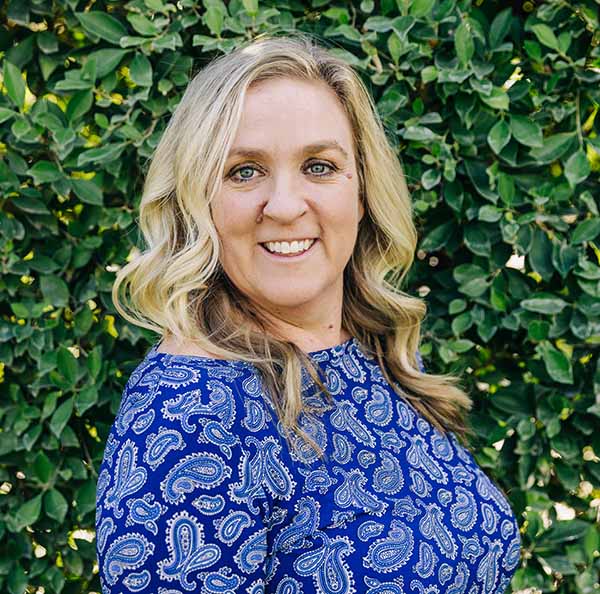When I stepped onto the urban campus of Frank M. Sokolowski School in Chelsea, MA, I felt a combination of excitement and intimidation. I was nervous to meet my mentor teacher and students all on the first day of school.

Due to the business-like nature of the partnership between my placement and the university (the struggling school district had recently been taken over by our School of Education), we did not have allotted time to meet and build a relationship or discuss my upcoming student teaching goals. I was expected to show up, observe, and learn by watching my mentor teach. I remember feeling out of place throughout the semester, struggling to find my teacher voice, and wondering how I would be ready for my own classroom.
Teaching in schools where students have been historically underserved requires understanding your own identity, learning about the cultural context of your students and families, and making instructional decisions that are culturally responsive to the community you are serving. As a result, preparing our incoming pre-service candidates to become culturally responsive practitioners is an extremely critical task.
It is astounding how many of us can say that we did not feel prepared entering the teacher workforce, and with the current state of education today, meaningful teacher preparation is important now more than ever so that all K-12 students receive an equitable educational experience.
As mentor teachers prepare to support pre-service candidates and novice teacher development this fall, we must focus the student teaching or mentoring experiences to be learner-centered as we would do for our own students.
Mentor Teacher = Teacher Educator
Clarke et al. (2014) identified and described three common conceptions of the mentor teacher role. First, was the classroom placeholder role that required minimal participation by the mentor teacher. In this conceptualization, the mentor teacher immediately handed off the curriculum and students to the pre-service candidate and exited to the teacher lounge for the rest of the practicum. This type of mentor-teacher assumed that the student-teacher should be immersed in the daily practices of teaching and expected to take over the teacher role upon arrival because that was how they experienced their own student-teaching practicum.
Second, a more common approach to working with student-teachers was that of a supervisor of practica. This role was conceptualized based on the assumption the mentor teacher oversees the work of the student-teacher. The novice was still mainly responsible for acquiring the knowledge they needed to be able to teach from their experiences in the classroom while the mentor-teacher observed, recorded, and reported on the novice’s progress and application of that knowledge in the classroom setting. Although this conception required more involvement from the mentor teacher, the interactions with the pre-service candidate were unidirectional with the knowledge and feedback solely coming from the mentor teacher.
In direct contrast to the first two conceptualizations of the cooperating teacher role, a third description was one of teacher-educator. This conception required the highest level of interaction and engagement with the novice teacher, embodying the role of a coach. These mentor teachers were consistently working closely with their novices in the real classroom setting, encouraging them to make meaning of their own practice, and providing strategic guidance on how to develop a personalized repertoire of pedagogical practices. These mentor-teachers saw themselves as part of the larger context of teacher education, used current literature and debates on practicum settings as a knowledge base, and characterized their work as complex, uncertain, and unique. It is this conception of teacher-educator that is ideal when mentor teachers are preparing novice teachers to work effectively with students who have been historically marginalized.

We must elevate the role of mentor teacher to that of teacher educator in order to shift the focus to the tenets of a learner-centered approach:
1. Learning is competency-based
2. Learning is student-owned
3. Learning is personalized
4. Learning can take place anytime, anywhere
When we are strategic about setting up mentoring experiences to be learner-centered, we provide opportunities for authentic, meaningful learning to occur acting more as facilitators or coaches who encourage ownership and personalization of the developmental process. Remember that our pre-service candidates are learners too and that they need to be supported in a way where they can drive their own learning experiences.
What will you do?
To all of the mentor teachers embarking on your journeys this fall, first of all, thank you for your hard work and dedication to supporting the development of another teacher. This is often a thankless job, yet imperative for setting our novices on the right path. Second, please be good to yourselves and know that you are on your own adventure.
You don’t always have to get it right.
Please check out the Mentor Practice Standards to do your own self-reflection and select a mentoring goal in an area you would like to develop. Being transparent with your mentee about your own mentor development models that you are constantly pushing your own practice as well.
Third, consider conceptualizing your role as a teacher educator and one who has great influence on the development of another. Consider your positionality within the larger socio-political context of education and take pride in your role. Consider how you will make this year’s mentor experience more learner-centered so that your mentee will have the power to navigate their own pathway. We look forward to the work you will do building our future army of change agents.
Which approach will you take with your mentee this fall to help them become culturally responsive educators? What are you planning to do this fall to engage your novice teacher in a meaningful learning and mentoring experience? Please share.


